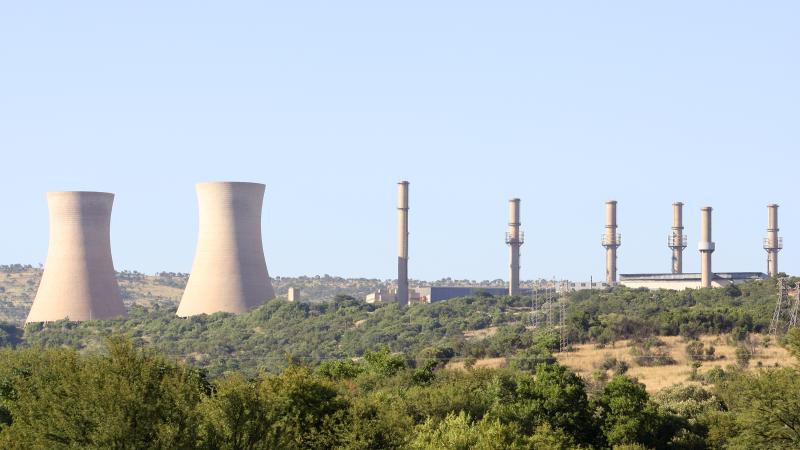Unique project at Rensselaer is one of eight in the country recently selected for federal funding
March 5, 2019

TROY, N.Y. — The United States Department of Energy (DOE) has announced that a research project at Rensselaer Polytechnic Institute is one of eight in the nation recently selected to receive federal funding geared toward the development of “novel and enabling carbon capture transformational technologies.”
Miao Yu, an associate professor of chemical and biological engineering at Rensselaer, will receive DOE funding of $3 million to support his work on a new, scalable approach to capturing carbon dioxide (CO2 ) before it leaves coal power plants and enters the atmosphere.
“Right now, everybody is facing this challenge. How can you design your technology to make the cost low for CO2 capture?” said Yu, who was named the Priti and Mukesh Chatter ’82 Career Development Chair at Rensselaer in 2018.
Yu is a member of the a member of the Rensselaer Center for Biotechnology and Interdisciplinary Studies, which recently launched multiple initiatives relating to energy and the environment. The center’s interdisciplinary approach to addressing these global challenges is a manifestation of The New Polytechnic, the conceptual model for research and education at Rensselaer.
Yu and his team are developing a sorbent capable of trapping carbon dioxide in its pores as flue gas—exhaust produced by coal power plants—passes through it. The sorbent is a surface modified solid powder-like material made of zeolites, which are minerals with very small pores.
The research team plans to create a water-resistant and molecular-sieving coating that will be applied to the zeolite in a way that can be carefully adjusted to control the size of the pores. That will make it possible for the sorbent to capture carbon dioxide while rejecting similarly sized molecules like nitrogen.
“The combination of this concept with the zeolite material is unique,” Yu said. “No other group in the world is working on this.”
What also sets this solution apart from other existing CO2 capture systems, Yu said, is the cost-saving potential. That is an important consideration as the Department of Energy looks for solutions that can be implemented on a large scale.
“Carbon capture is an important challenge at the intersection of energy, environment, and sustainability. This grant from the Department of Energy recognizes transformational interdisciplinary research at Rensselaer translating fundamentals to real-life applications,” said Shekhar Garde, dean of the School of Engineering at Rensselaer. “I congratulate Professor Yu and his team, and I look forward to the advances that result from this research.”
Patrick Underhill, associate professor of chemical and biological engineering at Rensselaer, will work on simulations to prescreen which zeolites and coatings may work best.
Once Yu’s team has finalized the material development, the sorbent will be tested in a larger system at the University of South Carolina with simulated flue gas to see how efficient it is. The final product will be sent to the National Carbon Capture Center, where the sorbent material will be tested with real flue gas over a longer period of time.